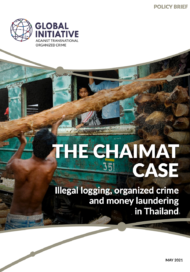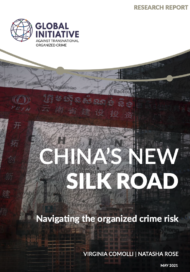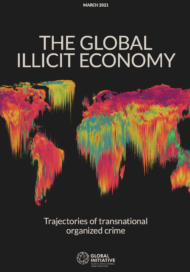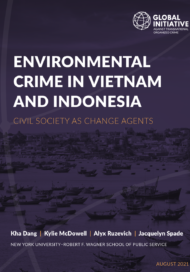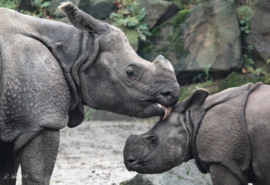Posted on 28 May 2021
Timber smuggling in South East Asia is big business, as the simple act of crossing a border can send the price of some rare wood soaring. Siamese rosewood, for example, can increase in value by up to 900 per cent when it is smuggled across the Lao or Vietnamese border to China. China’s demand for rosewood is largely driven by the hongmu furniture market, which has boomed over the past two decades and seen prices for some rosewoods rise as high as US$80 000 per tonne.
Trafficking in wildlife species is also a lucrative illicit activity in the region, again due to demand from China, where top prices are paid for a wide range of wildlife, from tiger parts to rare fish. These illicit regional markets are dominated by organized crime groups that arrange the sourcing, transport and sale of the illicit products.
Their operations are often sophisticated: one timber smuggling group, for example, set up a used-car dealership to supply a rotating source of transport for their five-vehicle smuggling convoys. Investigators have also found links between timber and drug trafficking convoys.
Indicting this illicit flow comes with risks and challenges: while rosewood seizures are highest in eastern Thailand, close to the Lao border, forest guards in Thailand carry only shotguns, while traffickers carry Kalashnikov rifles and hand grenades, leftovers from the Cold War. But more fundamental is the issue of corruption, which is one of the main enablers of the illicit wildlife trade. With law enforcement and customs agencies often turning a blind eye, these organized criminal groups for the most part operate with impunity.
The story of the Chaimat network, however, is different. Kampanart Chaimat had experienced several run-ins with Thai law enforcement (with varying outcomes) and allegations arose about the involvement of his family in the illegal trade in Siamese rosewood. Evidence tended to suggest that Kampanart was an integral member of an illegal smuggling network, obtaining Siamese rosewood to be sold onto Vietnamese or Chinese consumers for 10 times the original value. Court documents state that ‘according to the investigation report of Ban Pao Police Station, Chaiyaphum, the Chaimat family showed a number of linkages to the illegal wildlife trade and the subsequent accumulation of an abnormally wealthy status’. In 2014, Thailand’s Financial Intelligence Unit and the Anti-Money Laundering Office (AMLO) launched a financial investigation to ascertain the network’s wealth and source of funds. The AMLO has been leading a crackdown in Thailand on criminal groups engaging in wildlife crime.
More recently, media reported on 19 March 2021 that 200 million baht of assets linked to notorious wildlife trafficker Boonchai Bach had been seized. Bach evaded authorities in 2019 over the trafficking of rhino horn, but authorities have now identified significant wealth accumulated through a series of assets including hotels, land, bank accounts along with guns, vehicles and buddha amulets.
The Chaimat investigation revealed a truly transnational criminal organization. Laos and Vietnam served as major sources of funds for the network’s criminal activities, with court documents describing a comprehensive money-laundering operation in Laos that remitted almost 1 billion Thai bhat (approximately US$29 million) into the Thai bank accounts of Chaimat family members. The investigation also identified strong connections with Malaysia, as a source destination for illicit wildlife products and assets worth US$3.6 million. The Chaimat family members were unable to prove that the wealth and associated assets had been legally obtained, hence the assets were ordered to be forfeited to the state.
The ability of the financial investigation to penetrate the group’s affairs exposed a critical weakness of family-run criminal networks. The family’s reliance
on a flat command structure, consisting of a close circle of relatives, friends and associates, made them vulnerable to systemic pressure from investigators looking for sources of individual wealth. But while the investigation is still listed on the AMLO website, it is unclear if any assets have yet or will be recovered.
Drawing extensively on the 2014 financial investigation, this paper seeks to map and highlight the financial flows, payment mechanisms and money movements between key members of the Chaimat network to further understand its modus operandi and provide an insight into illegal environmental operations in Thailand.
